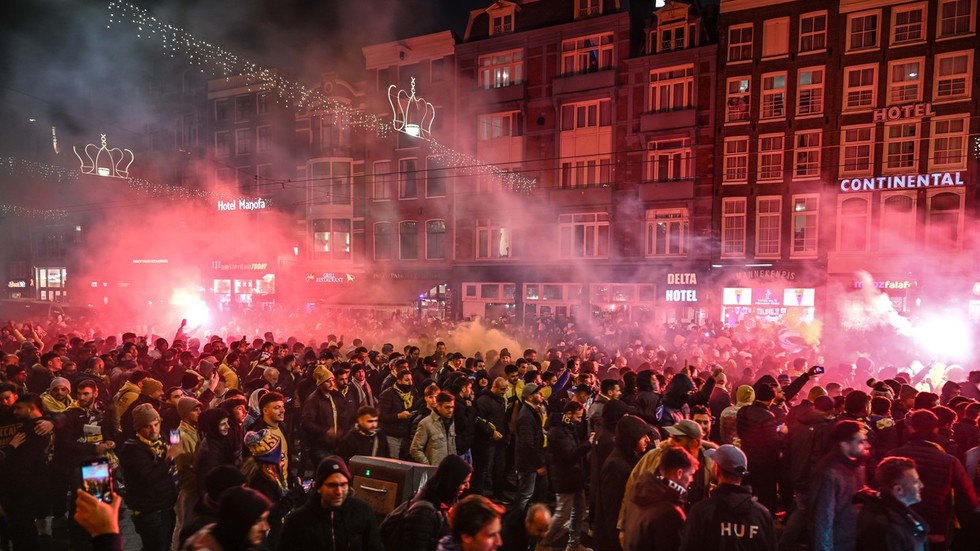Following a Europa League match between Maccabi Tel Aviv and Ajax from the Netherlands, an incident in Amsterdam turned violent as Israeli football fans were reportedly attacked. The Israeli Defense Forces (IDF) initially announced plans to dispatch medical and rescue teams to the Dutch capital to aid the injured supporters, following Prime Minister Benjamin Netanyahu’s directive to send aircraft to bring back those affected by what was described as “anti-Semitic” violence. The fray left at least ten fans injured, drawing attention from authorities and raising concerns about escalating tensions between different groups within the city.
Despite the initial commitment to provide assistance, the IDF later reversed its decision, announcing that it would not send the intended rescue team to Amsterdam. This abrupt change in course came without any clarification, prompting speculation about the underlying reasons. Israeli officials, including the Ambassador to the UN, characterized the assault on the fans as a “pogrom,” emphasizing the dangerous precedent it sets in terms of anti-Semitic aggression and radical terrorism. This incident underscores the fragile situation in Europe concerning rising antisemitism and tensions involving various ethnic and religious groups.
In response to the violence, Dutch Prime Minister Dick Schoof condemned the attacks as “completely unacceptable” and reaffirmed his commitment to ensuring that perpetrators would be held accountable. He communicated with Netanyahu to resolve the matter, illustrating a recognition by both leaders of the need for heightened security and justice. The Dutch police reported that several individuals had been hospitalized, and more than sixty arrests were made in connection with the violent incidents, indicating the scale and seriousness of the altercations that took place.
Preparations for the match had been contentious, as prior to the outbreak of violence, authorities had banned pro-Palestinian protests near the stadium due to potential clashes. This decision was made by Amsterdam’s Mayor Femke Halsema, who aimed to prevent escalations as the two groups converged. This highlights a growing unease in Amsterdam, as authorities feel pressured to contain rising tensions surrounding issues of identity, nationalism, and political expression that often manifest during major sporting events.
Controversy continues to surround the events leading up to the violence, particularly with reports emerging from some media outlets, including Iranian state media, suggesting that the Israeli fans may have instigated part of the conflict. Claims indicated that they engaged in provocative behaviors, such as chanting anti-Arab slurs and tampering with Palestinian flags, as they marched. Such narratives add layers to the discourse on responsibility in these clashes and point to the complexities of cultural and national identity manifesting in sports-related scenarios.
Ultimately, the situation in Amsterdam serves as a microcosm of broader societal issues manifesting in Europe, where anti-Semitic sentiments and rising nationalism are increasingly coming to the fore. The Israeli government’s response and the Dutch authorities’ handling of the fallout will be scrutinized, as they navigate the delicate balance of ensuring safety during cultural events while addressing the underlying tensions that fuel division. Both nations seem committed to addressing the challenges posed by this incident, but the risk of similar occurrences looms as societal fractures deepen in an increasingly polarized world.

